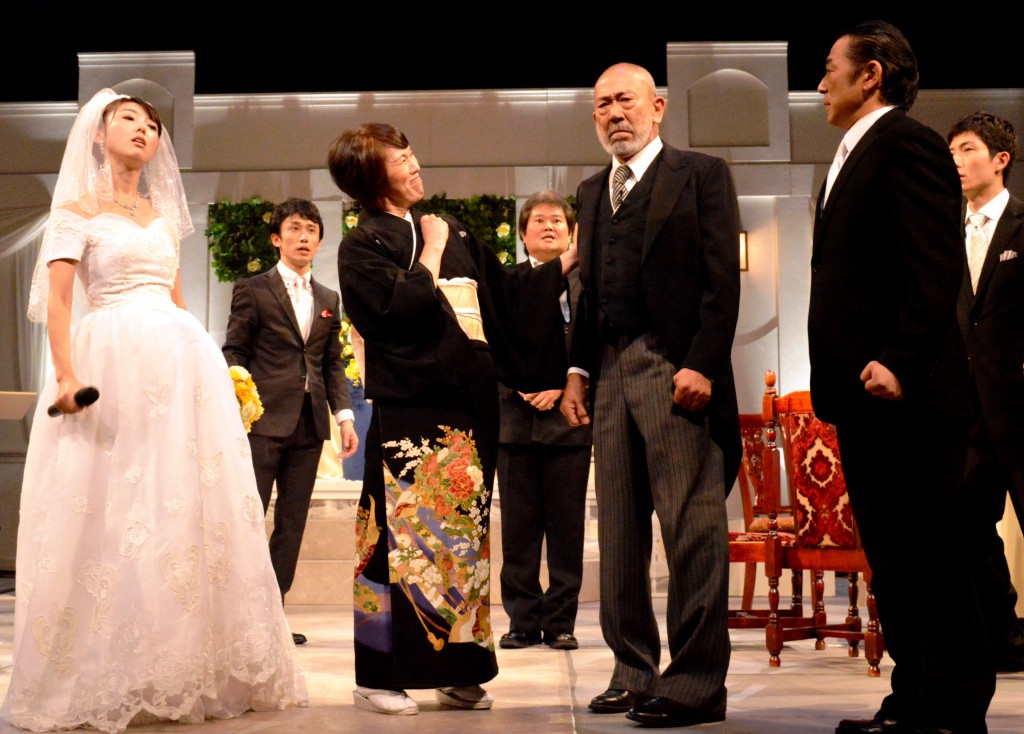
Tsunehiko Kamijo (third from right), who plays the role of a farmer in “Shiawase no Tane,” performs a scene in which he argues with his granddaughter on the issue of seeds in Tsuru, Yamanashi Prefecture, on Friday, Aug. 29.
Yoshiya Kaneko
Do you know where life originates from?
The first performance of “Shiawase no Tane” (meaning “Seed of Happiness” in Japanese), a play depicting a young farmer working to preserve the seeds of heirloom vegetable varieties, was held in Ttsuru, Yamanashi Prefecture, on Friday, Aug. 29.
The play, which describes the current situation of agriculture and conveys the importance of protecting traditional food culture, will also be staged in Yamagata and Tokyo in October and in other areas nationwide next year.
The script of the play was written by Riko Sakaguchi, co-writer of Studio Ghibli animation film The Tale of Princess Kaguya. Veteran actor Tsunehiko Kamijo plays the role of a farmer who insists on using F1 (meaning first generation) hybrid seeds which guarantee higher-yielding, better-looking and disease-resistant crops.
Play producer Mitsuyoshi Murayama first became aware of the issue when he was shocked to learn that the vegetables he normally eats are grown from seeds which can produce the desired crop variety within just one generation. Since then, he became interested in vegetable seeds, and when he met farmers struggling to preserve native seeds, he came up with the idea of making their lives into a play.
“I don’t deny F1 seeds completely, but I want as many people as possible to know that species which last only for one generation are dominating the market, and that seeds of native breeds which are barely protected by some farmers are disappearing because they do not meet the needs of the times,” Murayama said.
The play starts with a young man distressed from overwork in a big city being healed by vegetable dishes made by his girlfriend. Impressed with the strong flavor of heirloom vegetables, the man decides to move to the girlfriend’s hometown and become a farmer dedicated to saving heirloom seeds. However, the girlfriend’s grandfather, played by Kamijo, strongly opposes her marrying the man, saying there is nothing wrong with farmers growing stable hybrid varieties to make a living.
“The play clearly describes concerns regarding vegetable seeds,” said Fuyuki Taguchi, sophomore of a university in Yamanashi who watched the performance. “The performance made me think.”
“I wrote the story to let people learn and think about vegetable seeds,” said Sakamoto who created the script.
“I grow vegetables myself,” said Kamijo who plays the role of a farmer. “Both F1 and heirloom varieties are necessary and should be maintained. The important thing is to make both types coexist.”
The play will be performed in Tsuruoka, Yamagata Prefecture, on Oct. 20 and 21, and in Tokyo’s Suginami Ward between Oct. 27 and 29.
(Aug. 30, 2014)

